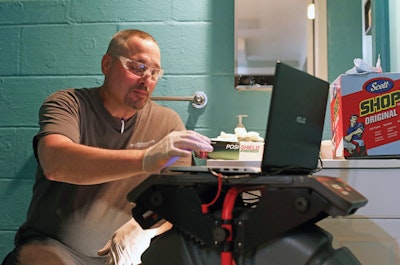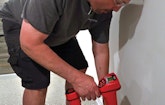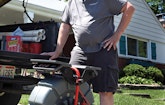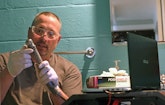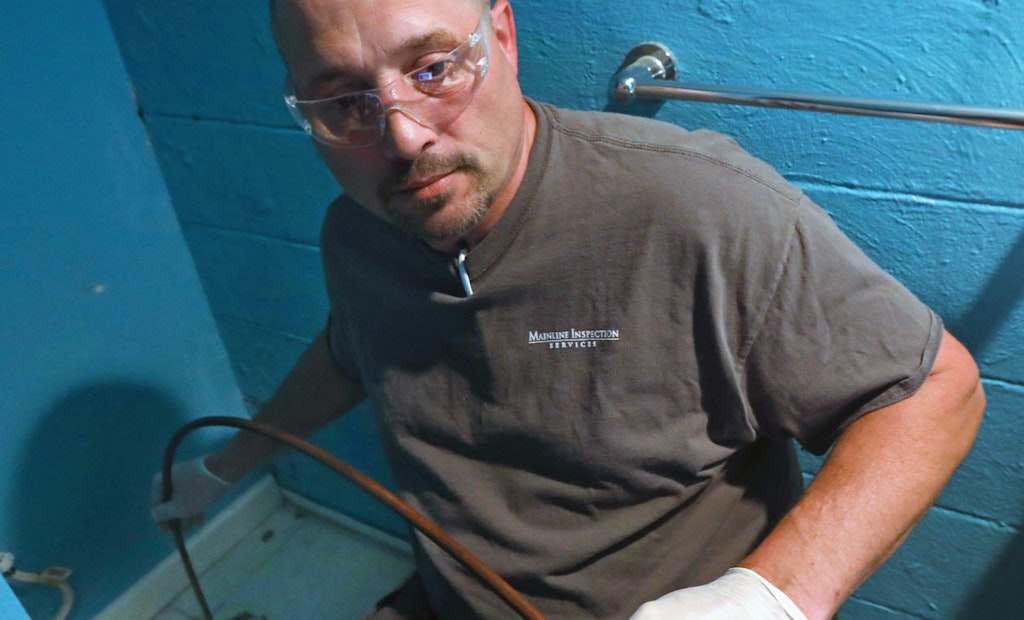Interested in Business?
Get Business articles, news and videos right in your inbox! Sign up now.
Business + Get AlertsPatrick Hooper’s inspection business began with a single question: “Who do you call if you want an honest, unbiased pipe evaluation?”
It only took about a month working as an estimator for a pipe cleaning and repair business before Hooper saw that some companies were pushing unnecessary costs onto clients through expensive remediation.
“It dawned on me that they were aggressively pushing the high-end options whenever somebody went out and did an inspection,” Hooper says. “I felt like there were a lot of digs and repairs offered that in my opinion probably weren’t necessary, or at least they weren’t the only option, but the less-expensive options weren’t really discussed.”
With experience on the consumer end after a sewer backup in his own home, he saw the value of objective assessments — and a gap in the market for that service. With that in mind, Hooper established Mainline Inspection Services, a contracting business focused solely on inspection work in the greater Cincinnati area, with no remediation services of any kind.
Sink or swim
Hooper went all in, maxing out his credit card to buy top-of-the-line camera and inspection equipment. With no jobs on the hook starting out, it was a leap into uncharted territory.
“It was scary — I had a job, I had benefits, and I had insurance; however much I made, I knew I had the benefits,” he says. “I had some job security. I go from cashing a weekly check to basically depending on myself, relying on myself. There were no handouts; there was no money there — I had to make it. So that was my motivation.”
Though a bold and risky proposition, it wasn’t a spur-of-the-moment decision. Hooper stayed on with the repair company for about a year before deciding he had a good grasp on the technical side of the business.
“I looked at it as going to school every day. In all of our meetings and everything, I just paid attention. I absorbed and I learned everything I could possibly learn about the industry — about sewer lines, types of lines, problems, ways to remediate, mitigate — and about a year into it, I decided I was ready to go,” Hooper says.
His first step after buying equipment was simple cold-calling, and he cast a wide net in his initial foray.
“I got on the phone, and I just started calling companies. I started off calling other contractors because many don’t have their own cameras and calling home inspectors, Realtors,” Hooper says. “I was calling property management companies, construction companies, excavation companies — anybody who would need or want or appreciate somebody doing unbiased evaluations.”
Doing a 180
A career in sales preceded his entry into the cleaning industry. Around the 2008 recession, Hooper was laid off from his job at a publishing company, and after a brief stint in the banking industry, he became a full-fledged victim of the economic downturn.
Unable to find another job, with twin daughters under 2 years old, he and his wife, Erin, were forced to burn through their retirement savings and take on debt just to stay afloat.
When a sewer backed up at their house, it could have been the straw that broke the camel’s back, but it instead turned into a life-altering opportunity.
“They offered to send somebody out with a camera to do a follow-up inspection, and the gentleman who came out was pretty thorough. I was kind of impressed, so I asked him if they were hiring,” Hooper says.
With his background in sales, he was hired almost immediately as an estimator.
“It was not an easy transition,” Hooper says. “You’re used to wearing ties and working in an air-conditioned office. Next thing you know, you’re sticking a camera down a dirty sewer line, working outside. You’re sweating, and you’re dirty.
“It was night and day compared to what I used to do. Basically I went from white collar to blue collar, more or less.”
At the time, deciding to join the industry was a choice made out of necessity: a “gotta do what you gotta do” moment, Hooper says. Only about a month into working at the plumbing company, he knew business practices wouldn’t work for him.
“Our job was to generate revenue. Our job was to sell. That’s why they hired a salesman for that job, somebody who had very little background in plumbing excavation. They hired somebody who sold for a living — that’s what they wanted,” Hooper says. “Not all of them do it; a lot of them don’t, but it’s a way to get your foot in the door. It was our job to create some sense of urgency and concern and help sell the repair.”
Going solo
Launching his own business was hard work, and even though it was work he felt good about, it was a long road.
“After you do it for a while, it gets interesting. You start to learn more about sewer lines, how they work, and different kinds of pipe. A lot of the inspections you go on are sort of problem-solving, kind of like detective work, so those are fun,” Hooper says. “I couldn’t imagine going back into an air-conditioned office, wearing a tie and suit, running sales meetings, and being responsible for quotas, sales numbers, and all of that. I couldn’t imagine going back to it.”
Starting the company added another $15,000 in debt for a full complement of RIDGID equipment, on top of $20,000 in existing debt, stretching Hooper and his family to the limit. Fortunately, the simplistic business model meant low overhead, and within a few years, business was thriving.
“It’s not a brick-and-mortar company, so I work out of my house, at least for now. I’m not paying rent on a facility. Probably the most expensive overhead is fuel, insurance and maintenance on the equipment,” Hooper says.
“The first year was extremely tight, and there really wasn’t much profit at all. We almost doubled our revenue in the second year, and it continued to grow from there.”
Utilizing free online resources like Facebook and networking through trade organizations helped grow revenue by 620 percent from 2011 to 2017. Currently, about 80 percent of his business is in prepurchase inspection, though Hooper hopes to increase homeowner inspections.
“It was a true gamble on a complete unknown: It was either going to work, or we were going to go completely bust,” Hooper says. “I don’t think I ever had doubt; I always had confidence in the idea. To be able to call somebody for an honest, objective opinion, assessment on the line, it was a no-brainer to me."
No looking back
Within the past year, Hooper paid off the last of his equipment debt and is planning for the future.
“With the debt paid, we can start investing back into the business and begin to think about how we want to grow,” Hooper says. “We’re kind of going back and forth about how to grow it — I keep coming back to the idea of franchising the business, but I need to get a little bit more growth in this city, in this market, before I do that.”
One thing is for sure, Hooper is happy to be on his current path, growing his business and doing things the right way.
“I tell my wife my tag line should be ‘we get paid to be honest’ because that’s our job. Our job is to be honest with people.”
Smoothing out the rough spots
Getting to profitability with a steady customer base was a rough road for Mainline Inspection Services of greater Cincinnati, and though he had confidence in the idea behind the company, owner and sole operator Patrick Hooper felt overwhelmed in the beginning.
One of his first jobs flirted with disaster when he couldn’t get his new equipment to work. It ended up being an issue of compatibility between his laptop and the video software — solvable, but for a moment while on the job site, Hooper started to panic.
“I thought, ‘What have I gotten myself into?’” Hooper says. “It seemed to work OK in my house, but once I got to that job, the software wouldn’t work, nothing worked — I couldn’t get the video to work.
“I was so embarrassed. Everything was just not working, not functioning. The guy is looking at me like, ‘You don’t know what you’re doing,’ and it wasn’t because I didn’t know what I was doing, it was the equipment that I didn’t understand,” he says. “During that first inspection, I was like, ‘Yeah, this was a mistake. I don’t know what I was thinking.’”
But he got through it — then he made it through the next job, and the next, learning all the way.
“If you look at my reports I did when I first started compared to the reports I do now, there’s no comparison,” Hooper says. “There are a lot of things you learn as you go.”
